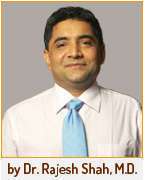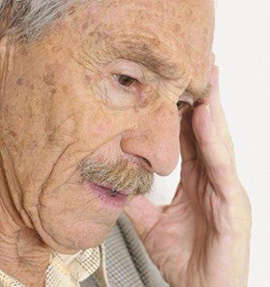
Homeopathic Treatment for Alzheimer
Mother Nature has blessed mankind amongst all the entities on the earth with an extraordinary quality of logical and rational thinking. The storehouse of immense knowledge, 'BRAIN' is the source of this exceptional attribute. Unfortunately, the entire system of an individual becomes handicapped as the same brain starts deteriorating. The major culprit that is involved in the deterioration of the brain is Alzheimer's disease (AD). Alzheimer's disease is a devastating disease of the brain that robs the afflicted individual of intelligence, memory, and eventually life.
As many as 2-4 % of all people 65 years and older have Alzheimer's. As many as 20 % (or more) of the population over 85 years of age have AD. Alzheimer's disease (pronounced AHLZ-hi-Merz) is one of several disorders that cause the gradual loss of brain cells. The disease was first described in 1906 by German physician Dr. Alois Alzheimer. However, Alzheimer's disease did exist long before the birth of Dr. Alzheimer's. Research has shown that Alzheimer's disease is the leading cause of dementia; in fact, 70% of dementia is due to Alzheimer's disease.
Dementia is an umbrella term for several symptoms related to a decline in thinking skills and progressive deterioration of brain performance. Common symptoms include a gradual loss of memory, problems with reasoning or judgment, disorientation, difficulty in learning, loss of language skills, etc. People with dementia also experience changes in their personalities and behavioral problems. The cumulative effect of all these changes becomes distressing to the individuals and their families. It should be stressed that Alzheimer's disease knows no social, economic, ethnic, or geographical boundaries; eventually, those affected cannot care for themselves and need help with all aspects of daily life. The magnitude of this disease is huge, there are estimated to be 17-25 million people worldwide with Alzheimer's disease.
What happens to the brain in Alzheimer's disease?
Alzheimer's disease is characterized by the progressive death of brain cells. This results from two abnormal structures in the brain: Amyloid plaques (pronounced AM i loyd, which are clumps of protein fragments that accumulate outside of cells, and Neurofibrillary tangles (pronounced NUR o FI bri lair ee), which are clumps of altered proteins inside cells.
Why do these changes develop in the brain?

Research about these structures has provided clues about why nerve cells die, but scientists have not determined exactly why these changes develop. In short, no one yet knows exactly what causes Alzheimer's disease. Most researchers agree that the cause may be a complex set of factors. Though Alzheimer's disease affects individuals in the 40s and 50s, studies have shown that the greatest known risk for developing Alzheimer's is increasing age. As many as 2-4 % of all people 65 years and older have Alzheimer's. As many as 20 % (or more) of the population over 85 years age have AD. A family history of the disease is another known risk. Having a parent or sibling with the disease increases an individual's chances of developing Alzheimer's. Many mysterious diseases have provided interesting clues through genetic studies. Scientists have identified certain genes which are very strongly related to Alzheimer's.
Other factors:
Many diverse medical theories, including the biochemistry of acetylcholine and neurotransmitters, inflammation, oxidative stress, and free radicals, and homocysteine, nutritional and vitamin deficiencies, as probable causes of Alzheimer's disease have been put forth. A wide array of risk factors for Alzheimer's include disorders of blood circulation, hormonal imbalance, head trauma, emotional stress, alcohol abuse, metabolic defects, nutritional deficiencies, and even some infections.
How Alzheimer's disease presents:
Declining memory is the most common early symptom of Alzheimer's. Some change in memory is normal as we grow older, but the symptoms of Alzheimer's disease are more than simple lapses in memory. People with Alzheimer's experience difficulties communicating, learning, thinking, and reasoning - severe enough to impact an individual's work, social activities, and family life.
While it's normal to forget appointments, names, or telephone numbers, once in a while, those with Alzheimer's will forget such things more often and not remember them later. In addition, People with ordinary forgetfulness can still remember other facts associated with what they have forgotten. For example, they may briefly forget their next-door neighbor's name, but they still know the person they are talking to is their next-door neighbor. A person with dementia will forget not only their neighbor's name but also the context.
Individuals with AD begin to misplace everyday items, such as car keys or eyeglasses, and become disoriented and get lost in familiar surroundings (such as when driving on well-known streets). With Alzheimer individual finds it difficult to perform even familiar tasks and may forget the steps for preparing a meal, using a household appliance, or in what order to put clothes on.
A person with Alzheimer's disease often forgets simple words or substitutes unusual words, making his or her speech or writing hard to understand. Individuals with Alzheimer's often show poor judgment about money and mathematics.
People's personalities ordinarily change somewhat with age. But a person with Alzheimer's can change a lot, becoming extremely confused, suspicious, fearful, or dependent on a family member. Alzheimer's may become unusually emotional and experience rapid mood swings for no apparent reason. Alternatively, a person with Alzheimer's may show less emotion than usual. In addition, they may experience delusions (believing in a reality that does not exist) and hallucinations (seeing things that do not exist).
In the terminal phase, Alzheimer's patient enters a world where he can recognize nothing… neither family members and friends nor himself.
How the disease progresses: Alzheimer's disease advances at widely different rates. The duration of the illness may often vary from 3 to 20 years. Eventually, the person with Alzheimer's will need complete care. If the individual has no other serious illness, the loss of brain function itself may cause death.
How the condition is diagnosed:
Early diagnosis of Alzheimer's is an important step in getting appropriate treatment, care, and support services. There is no one diagnostic test that can detect if a person has Alzheimer's disease, but the process involves several kinds of tests and may take more than one day to complete the evaluation. Evaluations may include the following steps:
- A medical history, which collects information about current mental or physical conditions, prescription and nonprescription drug use, and family health history
- A mental status evaluation to assess sense of time and place; ability to remember, understand, and communicate; and ability to do simple math problems
- A physical examination, which includes the evaluation of the person's nutritional status, blood pressure, sensations, balance, and other functions of the nervous system
- Investigations like a brain scan like CT and MRI to detect other causes of dementia such as stroke and laboratory tests, such as blood and urine tests, for checking various components of blood, hormones, enzymes, infections, etc.
Treatment for Alzheimer’s Disease:
Alzheimer's disease is a difficult disorder. The homeopathy system offers reasonably positive treatment if not cure.
When we discuss the role of medicine for certain diseases, we probably do not talk of the 'cure' in a real sense but more of 'control' and 'relief.' AD is one such condition, where homeopathy has the following role to play:
- To control the disease process whereby further deterioration of the brain damage is helped to a certain extent
- To improve to an extent, some of the symptoms: include communication, failing memory, anxiety, restlessness, etc.
Many problems associated with dementia, such as restlessness, depression, and agitation, can be treated effectively and gently with homeopathy. It may also be possible, especially in the early stages of Alzheimer's disease, to improve someone's memory with homeopathic medication. Timely administered homeopathy medicines can prevent further progression of the disease.
Homeopathy is over 207 years old medicine originated in Germany. Homeopathy is a revolutionary, natural medical science and a system of medicine that is gentle, effective, and devoid of side effects.
The homeopathic remedies are prepared from natural substances to precise standards and work by stimulating the body's healing power.
Homeopathy is one such branch of therapeutics that believes in treating the diseased patient and not merely diseased parts of the patient. This holistic approach goes in a long way in the management of various chronic and deep-seated diseases, including Alzheimer's.
Every person is unique, and dementia affects people differently - no two people will follow the same course. Hence, an approach to dementia care, which recognizes the personal history, character, and individuality of the person with Alzheimer's, has been shown to have a positive impact on the progress of the disease.
Alzheimer’s disease treatment in homeopathy undertakes a study of each case as a separate entity. It does an in-depth evaluation of the disease and the patient as a person. It means the physician has to understand the patient and his/her problems more deeply, about its symptoms, diagnosis as well as probable genetic background. The study also involves a deep evaluation of the mind and emotions. After appreciating the patient in his totality, a suitable medicine called 'constitutional medicine' is selected for the patient. The medication based on such a foundation brings a deeper level to the healing process for the sufferers of chronic diseases.
We at Life Force have some experience in homeopathy treatment for Alzheimer’s disease, and the experience has suggested that some definite improvement takes place in memory.
It should be noted that there is no single specific remedy for all cases of Alzheimer's. The exact treatment is determined only by an in-depth evaluation of the individual case.
Written & Approved by-
Dr. Rajesh Shah
M.D. (Hom.)